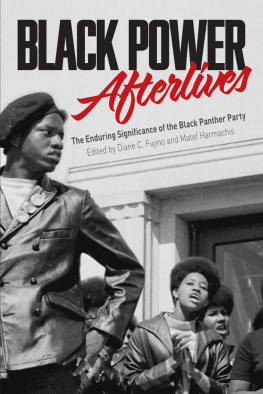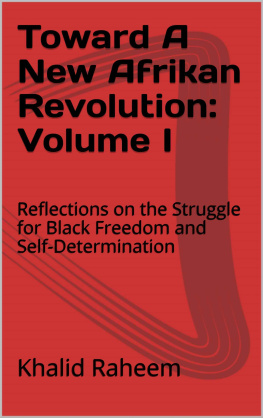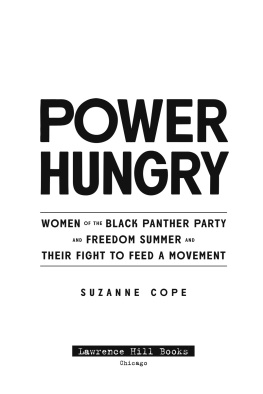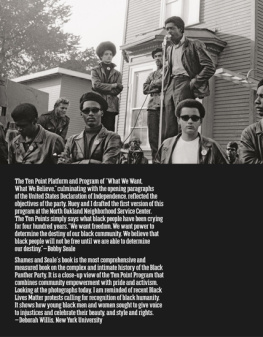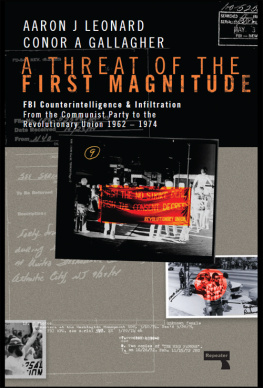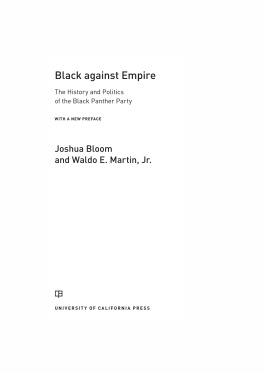STUDIES IN AFRICAN AMERICAN
HISTORY AND CULTURE
Edited by
Graham Hodges
Colgate University
A ROUTLEDGE SERIES
Studies in African Americanhistory and Culture
Graham Hodges, General Editor
CONSTRUCTING BELONGING
Class, Race, and Harlems Professional Workers
Sabiyha Prince
CONTESTING THE TERRAIN OF THE IVORY TOWER
Spiritual Leadership of African-American Women in the Academy
Rochelle Garner
POST-SOUL BLACK CINEMA
Discontinuities, Innovations, and Breakpoints, 19701995
William R. Grant, IV
THE MYSTERIOUS VOODOO QUEEN, MARIE LAVEAUX
A Study of Powerful Female Leadership in Nineteenth-Century New Orleans
Ina Johanna Fandrich
RACE AND MASCULINITY IN CONTEMPORARY AMERICAN PRISON NARRATIVES
Auli Ek
SWINGING THE VERNACULAR
Jazz and African American Modernist Literature
Michael Borshuk
Boys, Boyz, Bois
An Ethics of Black Masculinity in Film and Popular Media
Keith M. Harris
MOVEMENT MATTERS
American Antiapartheid Activism and the Rise of Multicultural Politics
David L. Hostetter
SLAVERY, SOUTHERN CULTURE, AND EDUCATION IN LITTLE DIXIE, MISSOURI, 18201860
Jeffrey C. Stone
COURTING COMMUNITIES
Black Female Nationalism and Syncre-Nationalism in the Nineteenth-Century North
Kathy L. Glass
THE SELLING OF CIVIL RIGHTS
The Student Nonviolent Coordinating Committee and the Use of Public Relations
Vanessa Murphree
BLACK LIBERATION IN THE MIDWEST
The Struggle in St. Louis, Missouri, 19641970
Kenneth S. Jolly
WHEN TO STOP THE CHEERING?
The Black Press, the Black Community, and the Integration of Professional Baseball
Brian Carroll
THE RISE AND FALL OF THE GARVEY MOVEMENT IN THE URBAN SOUTH, 19181942
Claudrena N. Harold
THE BLACK PANTHERS IN THE MIDWEST
The Community Programs and Services of the Black Panther Party in Milwaukee, 19661977
Andrew Witt
The Black Panthers in the Midwest
The Community Programs and Services of the Black Panther Party in Milwaukee, 1966-1977
Andrew Witt
Routledge
New York & London
| Routledge | Routledge |
| Taylor & Francis Group | Taylor & Francis Group |
| 270 Madison Avenue | 2 Park Square |
| New York, NY 10016 | Milton Park, Abingdon
Oxon OX14 4RN |
2007 by Taylor & Francis Group, LLC
Routledge is an imprint of Taylor & Francis Group, an Informa business
Transferred to Digital Printing 2009
International Standard Book Number-10: 0-415-98148-4 (Hardcover)
International Standard Book Number-13: 978-0-415-98148-4 (Hardcover)
No part of this book may be reprinted, reproduced, transmitted, or utilized in any form by any electronic, mechanical, or other means, now known or hereafter invented, including photocopying, microfilming, and recording, or in any information storage or retrieval system, without written permission from the publishers.
Trademark Notice : Product or corporate names may be trademarks or registered trademarks, and are used only for identification and explanation without intent to infringe.
Library of Congress Cataloging-in-Publication Data
Witt, Andrew, 1974-
The Black Panthers in the Midwest: the community programs and services of the Black Panther Party in Milwaukee, 1966-1977 / Andrew Witt.
p. cm. -- (Studies in African American history and culture)
Includes bibliographical references and index.
ISBN 978-0-415-98148-4
1. African Americans--Wisconsin--Milwaukee--Politics and government--20th century. 2. Black Panther Party--History. 3. African Americans--Civil rights--Wisconsin--Milwaukee--History--20th century. 4. African Americans--Services for--Wisconsin--Milwaukee--History--20th century. 5. Community life--Wisconsin--Milwaukee--Social conditions--20th century. 6. African Americans--Wisconsin--Milwaukee--Social conditions--20th century. 7. Milwaukee (Wis.)--Race relations--History--20th century. 8. Milwaukee (Wis.)--Social conditions--20th century. I. Title.
F589.M69N48 2007
322.420973077595--dc22
2006038302
ISBN10: 0-415-98148-4 (hbk)
ISBN10: 0-415-80397-7 (pbk)
ISBN13: 978-0-415-98148-4 (hbk)
ISBN13: 978-0-415-80397-7 (pbk)
Visit the Taylor & Francis Web site at
http://www.taylorandfrancis.com
and the Routledge Web site at
http://www.routledge-ny.com
In memory of Richard Witt and Florence Lauscher
Contents
There are countless individuals whom I would like to thank for helping me get to this point. First, I would like to thank all of those who have helped me throughout my academic career. William Van Deburg introduced me, and thousands of other undergraduates, to African American studies. Tim Tyson showed me that it was acceptable to be passionate when teaching your subject material, and he also helped me to become a more concise writer. Walter Weare helped to mold me into a historian, and he also bore the brunt of answering my early questions surrounding the Black Panther Party. For that, as well as for editing countless drafts for my Masters Thesis, I am deeply indebted to him.
During my first year of pursuing my doctorate at Loyola, I often thought of Tim Tysons words in Radio Free Dixie , where he daily threatened to flee his graduate school, because of its demanding nature. Fortunately, I once again found excellent and personable professors who helped guide me through graduate school. Illustrating her devotion to her students, Cheryl Johnson-Odim worked on my major exam and dissertation committees, even though she had moved on to another institution of higher learning. I cringed when Tim Gilfoyle gave me his reading list for my major exam, and now I thank him for it. Gilfoyle is also perhaps the most prompt and thorough scholar that I have ever encountered.
And then theres Paula. Paula Pfeffer put up with my antics for close to six years, which could be why she is retiring this year. In all seriousness, I do not think I could have made it through my graduate studies without Paulas expert guidance and advice. Thank you Paula.
In addition to the numerous individuals who have helped me within academia, there have been countless others outside of academia to whom I owe a lot. Dan Gray served as my first editor while at the University of Wisconsin-Milwaukee, and that was a thankless and dreary task. I suppose that could explain why he moved back home to England shortly after finishing his degree. I also owe a lot of thanks to my brother Bill, and sisters Elizabeth and Katy, and my friends and in-laws, Pat and Mark Mato, who cheered me on during this very long journey.
I am especially grateful to my mother, Jane, who made it possible for me to go to college in the first place. I will never forget the sacrifices she endured so that I could get an education.
I would like to thank my baby, Sadie, for making me laugh, even after I missed various publishing deadlines. I hope you will read this someday Sadie, and come to the conclusion that your father actually has an intelligent thought or two.
Finally, I would like to thank Kristin Witt. She is my best friend, wife, and mother of our first-born. No mere words of thanks can adequately express what she means to me, as she means everything to me.
In a 2003 interview, former Milwaukee Black Panther leader, and current Commander of the Black Panther Militia, Michael McGee, was asked what he considered the main objective of the Black Panther Party. McGee responded by stating that the central mission of the Party was in providing community programs and services to the African American community. McGee added, It (the Black Panther Party) was about picking up the hammer. We used to pick up the hammer more than we did the gun.



